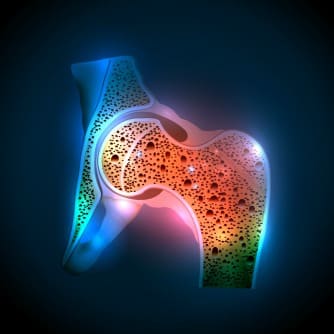Bone density lowers with age, and – among postmenopausal women – this can increase the risks of osteoporosis, a major contributor to bone fractures that can compromise health and independent living. Paivi Rauma, from the University of Eastern Finland (Finland), and colleagues analyzed data collected on 2,167 women, born between 1931 and 1941, enrolled in the Kuopio Osteoporosis Risk Factor and Prevention (OSTPRE) Study. These women underwent bone density measurements in 1999, and 1,147 of the subjects took part in follow-up measurements ten years later, in 2009. Life satisfaction was assessed by four questions relating to the study participants’ interest in and easiness of life, happiness, and loneliness. Based on the answers, the study participants were divided into three groups: the satisfied, the middle group, and the unsatisfied. The study focused on the possible effects of depression and other factors on bone health. During the 10-year follow-up, the bone density of all study participants weakened by an average of 4%; however, the difference between the satisfied and the unsatisfied was as much as 52%. Changes in life satisfaction during the 10-year follow-up also affected bone density. In persons whose life satisfaction deteriorated, the bone density weakened by 85% in comparison to persons whose life satisfaction improved. The study authors write that: “Easily assessed global life satisfaction should be taken into account when effects of aging and prevention of osteoporosis as well as health promotion in postmenopausal women are considered.”
Mental Health Linked to Bone Health
Rauma, Paivi H.; Koivumaa-Honkanen, Heli; Williams, Lana J.; Tuppurainen, Marjo T.; Kroger, Heikki P.; Honkanen, Risto J. “Life Satisfaction and Bone Mineral Density Among Postmenopausal Women: Cross-Sectional and Longitudinal Associations.” Psychosom. Med. 2014 Nov-Dec;76(9):709-715.
RELATED ARTICLES




